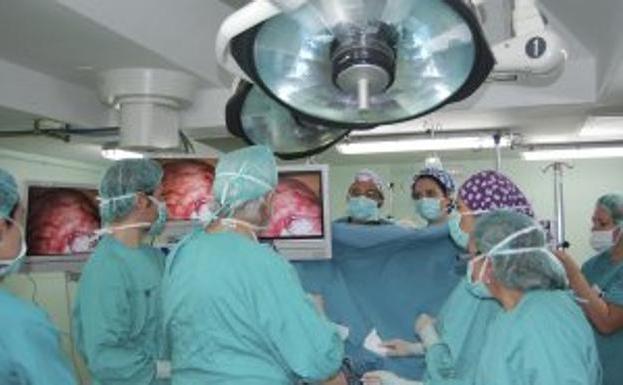Patients with morbid obesity are having to wait three to four years for surgery in Malaga
There are currently about 2,000 people on the waiting list for bariatric surgery under the health service in Malaga province
Morbid or extreme obesity is a real health problem for people who suffer from it, who see their body steadily gain extra kilos to such an extent that the situation becomes unsustainable. When the other alternatives for losing weight do not work, the remedy is bariatric surgery. However, the situation is difficult when some people are having to wait between three and four years for the operation under the health service in Malaga, which is what health care professionals have told us. They also say there are currently about 2,000 people on the waiting list in the province.
"The delays have got worse with the coronavirus pandemic and the waiting list for bariatric surgery is terrible at the moment. We would operate all day, every day, for as long as it takes to give a better response to these patients, but we don't have enough operating theatres to do that," say these sources.
They say it helps that some of these patients are referred by the health service to private hospitals for their surgery, but that is not happening enough. In the case of the Malaga Regional Hospital, (formerly known as the Carlos Haya), the staff also say they have offered to do overtime and operate on morbidly obese patients outside their normal working hours, but the Andalusian Health Service has not given them the necessary authorisation.
The health service has not set a maximum waiting time for surgery for morbidly obese patients
Something else which is contributing to the delays is that bariatric surgery is not included as one of the operations which has to be carried out within a certain time, so it gets pushed down the list so that others which are included can be given priority.
"In Spain in general and in Andalucía and in Malaga in particular at the moment, there is no capacity to provide a response to the waiting list for obesity," they say.
Because of the delays in the health service, patients who can afford it go to private hospitals for their bariatric surgery and are therefore able to lose weight sooner.
A growing number of people are overweight these days. In Spain this applies to 80 per cent of the population. The most serious situation affects those with morbid or extreme obesity.
Obese patients tend to suffer from diabetes, hypertension, high cholesterol, joint problems, osteoarthritis, plantar fasciitis, venous insufficiency (varicose veins and thrombosis of the lower limbs) and cancer. It has been shown that obesity favours the onset of cancer. In women breast cancer and in men colon cancer are often associated with excess weight. Another factor which causes serious damage is fatty liver.
And why do people become morbidly obese? In some cases it is due to genetic factors and in others it is due to their lifestyle. A sedentary lifestyle and unhealthy diet are elements that have a direct influence on weight. Also, it is more expensive to eat healthily, so obesity is more common in sectors of the population with fewer resources.
From the time somebody who is obese is told that they need an operation to the time they have the surgery, it takes at least a year. During that time they are evaluated, first by an endocrinologist, who establishes their dietary regime, then they see a psychologist and, finally, a surgeon who adds them to the waiting list for bariatric surgery, as this is something which has to be done in order for them to have the operation.


